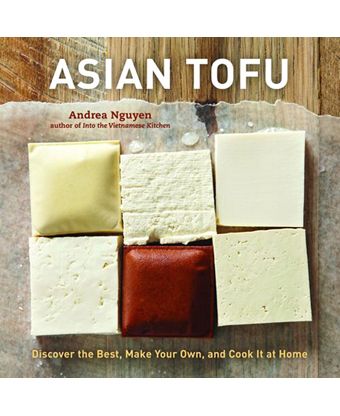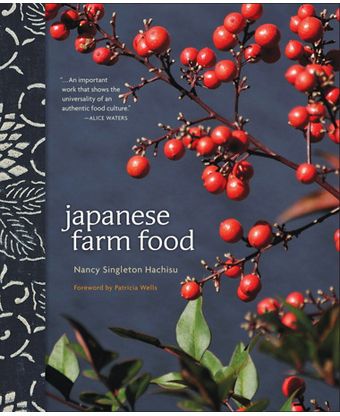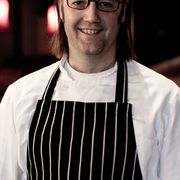The first thing that struck me about these cookbooks was how very different they actually are: Japanese Farm Food is a love letter to an entire culture, encompassing many varied elements, whereas Asian Tofu focuses not only on a single subject, but a single main ingredient.
I wondered if it was not imbalanced to compare the two.
It’s clear from the photos -- the book shows not just images of the recipes, but embraces people both young and old and the landscapes that fill their lives -- that Nancy Singleton Hachisu has a great enthusiasm for the culture of Japan’s northern Saitama Prefecture. The book celebrates the regional recipes, of course, but she does even more in expressing her love for the whole culture. Ostensibly, she has created a thank you note to the people of Japan for how she feels they have enriched her life, vis-à-vis the food. That she is inspired immensely by her surroundings comes through clearly in the pages of her book.
In my opinion, Asian Tofu’s photos are much higher quality -- but the food, somehow, doesn't look as tasty. The photos didn’t make me excited to try the recipes, to taste them, as they did in Nancy Singleton Hachisu’s cookbook. In the way of photos, Asian Tofu could have taken a page out of Japanese Farm Food: the latter created beautiful photo narratives, often showing how the dishes I was about to eat came together. It was effective. And it made me want to taste the food.
The recipes of both books created a bit of a stalemate -- in a positive way. Both were enticing: the Hand-Chopped Jack Mackerel with Miso in Japanese Farm Food, and the Sweet and Savory Tofu Eel in Asian Tofu, in particular, caught my eye on first read.
Japanese Farm Food’s Ramen at Home was not only easy to make -- especially for the home cook -- but, considering the broth only has six ingredients, it packed a lot of flavor. (Even three days later out of the fridge!) My personal thought is that people are better off buying ramen noodles instead of making them, as in my experience, homemade ramen rarely lives up to what you can get in a restaurant. But her pasta recipe was perfectly fine -- it just didn’t transport me to the ramen shops of the east village.
Sourcing the slightly unusual ingredients for Nguyen’s Rojak sauce on the Grilled Crisp Tofu Packets was worth the effort. It was delicious. The filling in the packets was deceptively simple, but it effectively complemented the texture of the tofu.
Still, I found myself repeatedly drawn to and much more interested in the offerings of Mrs. Hachisu’s all-encompassing manifesto.
It is not fair to judge the recipes in a cookbook after having only made a couple of dishes. In my opinion, I would need to make at least 30% of the food in each book to really assess the quality of the recipes, so my judgment is not based on that aspect. It is based, instead, on the presentation of the book as a whole, and how much it entices me to try the food. Japanese Farm Food, on both of these counts, succeeds. What it offers, its appeal, and the sense of Saitama Prefecture’s deep impression on Hachisu works, almost, to make an impression on you.



5 Comments